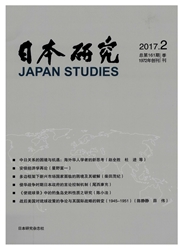

 中文摘要:
中文摘要:
从20世纪60年代开始,日本进入了资本主义福利国家的行列。日本福利国家的形成与发展既有深刻的政治、经济和社会背景,也有着丰富的理论渊源。第一,社会连带主义的团结互助思想是福利国家社会保障的理念基础;第二,凯恩斯主义是日本福利国家的理论基石,社会保障基本框架具有浓厚的贝弗里奇-凯恩斯主义色彩;第三,艾斯平-安德森的福利体制理论是日本福利国家再形成与发展的参照系。日本福利国家属于自由主义与保守主义的混合模式且正在发展途中,未来如何发展变化还需要进一步观察。
 英文摘要:
英文摘要:
Since the 60's of the 20th century, Japan has gradually established a capitalist welfare state. The constructing and developing of the Japan's welfare state not only has the profound background of politics, economy and society, but also has abundant origin of theory. Firstly, the solidarity of social solidarism is the basic idea of the social security of the Japan's welfare state; second, the Keynesianism is the theoretical foundation of the Japan's welfare state, and the basic framework of the social security has strongly influenced by Beveridge and Keynes theory; third, the welfare regime theory of Esping-Anderson is the reference system which the Japan's welfare state maybe reconstruct and continue to develop. The Japan's welfare state belongs to the mixed model with liberalism and conservatism, and maybe on the way of development. How the Japan's welfare state will develop and change in the future need be further observed.
 同期刊论文项目
同期刊论文项目
 同项目期刊论文
同项目期刊论文
 期刊信息
期刊信息
